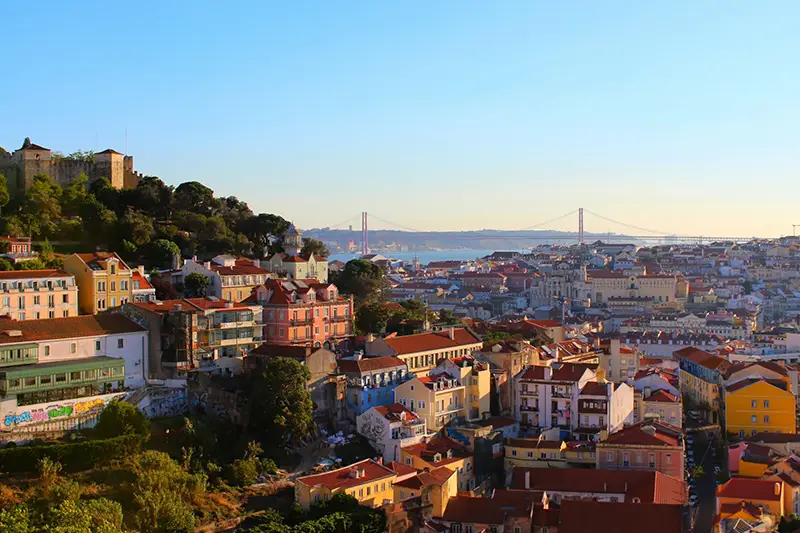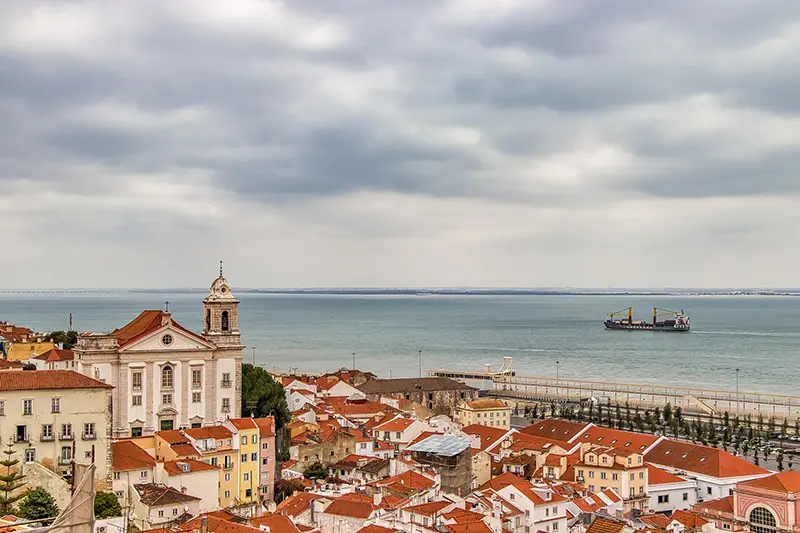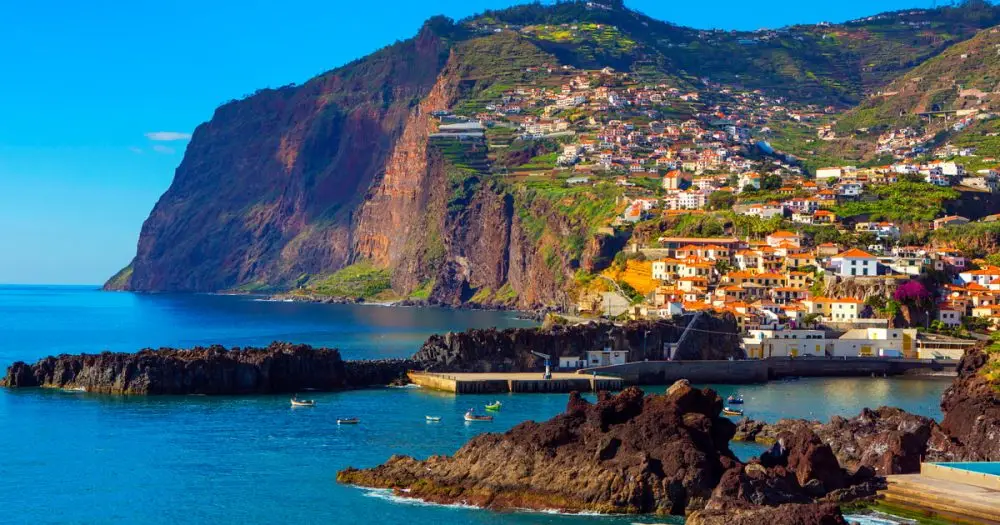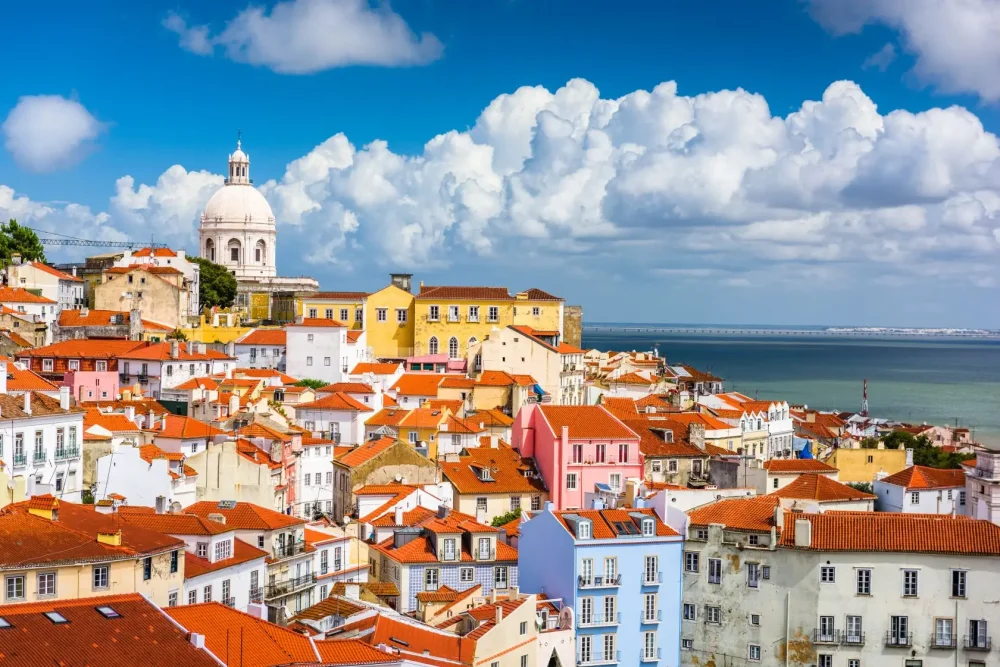Lisbon is a city where ancient architecture and modern buildings intertwine to create a unique image of the capital. Here you’ll find the narrow streets of Alfama, the sunny boulevards of Bairro Alto and serene views of the Tagus River. It’s no wonder that property in Lisbon is attracting more and more international buyers.

Lisbon is a city with a rich history, a warm climate and an unforgettable gastronomy. On the one hand, the architecture of Alfama makes you think of ancient Portugal, on the other hand, modern neighbourhoods such as the Parque das Nações symbolise the future. Real estate in the Portuguese capital comes in a variety of formats, from houses in historic neighbourhoods to ultra-modern apartments in new districts.
With an average annual temperature of 17 degrees Celsius and over 2800 hours of sunshine a year, it is one of the sunniest places in Europe. In addition to the climate, Portugal is also attractive for its security – Lisbon is considered one of those cities with a low crime rate and high quality of life.
Investing in real estate in Portugal is not just about buying square metres. It is an opportunity to receive a stable income from renting out accommodation due to the high tourist attractiveness of Lisbon. According to the Portuguese Institute of Statistics, housing prices in the capital are steadily increasing by 5-7% annually, and rental yields in popular areas such as Ciado and Bairro Alto reach 6-7% per year.
In 2021, the Portuguese government introduced a number of incentives for foreign investors, including the “Golden Visa” – the possibility of obtaining a residence permit for the purchase of properties worth 500,000 euros or more.
Apartments in Lisbon range from luxurious penthouses in Chiado with panoramic views of the city and river to small cosy flats in Alfama with an old-world feel. Prices for luxury homes can reach €1,000,000 and above, while mid-range flats cost around €300,000 – €500,000 depending on the neighbourhood and infrastructure.
In neighbourhoods such as Alfama, Bairro Alto and Chiado, time seems to stand still. There are narrow cobblestone streets, old buildings with colourful azulejo tiles, and a unique Lisbon atmosphere. Alfama is a neighbourhood where every building breathes history. Bairro Alto is the heart of the metropolis’ nightlife, where apartments are valued for their proximity to popular restaurants and bars.
 It is important to understand all the costs to be faced. In addition to the cost of the home, there is the property transfer tax (IMT), which ranges from 1 to 8%, depending on the price of the property. You also need to consider the annual tax (IMI), which ranges from 0.3 to 0.45% of the cadastral value of the property.
It is important to understand all the costs to be faced. In addition to the cost of the home, there is the property transfer tax (IMT), which ranges from 1 to 8%, depending on the price of the property. You also need to consider the annual tax (IMI), which ranges from 0.3 to 0.45% of the cadastral value of the property.
The choice of neighbourhood plays a key role. In the centre of Chiadu and Alfama, prices are higher, but the infrastructure is also developed at the highest level. The neighbourhoods of Ajuda and Benfica offer more affordable options, while maintaining a good standard of living and convenient transport accessibility.
Property prices in Lisbon can vary depending on many factors, but the legal procedures remain the same. The transaction requires a Portuguese tax number (NIF), a bank account and a preliminary contract of sale (CPCV). The final stage is the signing of the contract at the notary and registration of the property in the Land Registry.
It is very important to engage an experienced lawyer who will check all documents and ensure the legal integrity of the transaction. For example, a CPCV contract includes details of the terms, payment terms and possible penalties for breach of terms. This ensures security for both parties to the transaction.
The “Golden Visa” programme allows you to obtain a residence permit for the purchase of properties worth 500,000 euros or more. It allows you to travel freely in Schengen countries and subsequently obtain Portuguese citizenship.
The process includes several stages: from visa application to annual renewal. First you need to apply to the SEF (Portuguese Immigration and Borders Service), provide proof of purchase and financial means for residence.
Many Russian-speaking residents note the high level of comfort, safety and friendliness of the locals. For Russians, Lisbon is becoming a second home thanks to its mild climate, relaxed lifestyle and diverse culture. For example, one of the migrants, Dmitry, shares on social networks: “I moved to Lisbon three years ago, and I am still surprised at how open and friendly people are here. It’s a completely different rhythm of life, where quality over quantity.”
Families with children also note the high quality of education and access to international schools. Lisbon offers many parks and outdoor activities, making it an attractive destination for families.

 Property in Lisbon remains one of Europe’s most attractive investment destinations due to its unique combination of culture, climate and economic stability. Buying a home here is not just an investment in square metres, but an investment in a lifestyle where the sun shines almost all year round and the city opens its arms to all who want to be part of it.
Property in Lisbon remains one of Europe’s most attractive investment destinations due to its unique combination of culture, climate and economic stability. Buying a home here is not just an investment in square metres, but an investment in a lifestyle where the sun shines almost all year round and the city opens its arms to all who want to be part of it.

“Flowering Island” of Portugal represents an ideal place to live and holiday, thanks to its comfortable climate, low taxation and high quality of services. Many foreign nationals from all over the world are considering moving to Madeira in order to obtain permanent residence (Permanent Residence) or residence permit, benefit from all the advantages of residence, …

With its mild climate, Mediterranean cuisine and unique cultural atmosphere, Portugal is considered one of the most attractive destinations to relocate to in 2025. The country offers a harmonious combination of affordable prices and a high level of comfort. In this article, we will tell you how realistic it is for a Russian to fit …